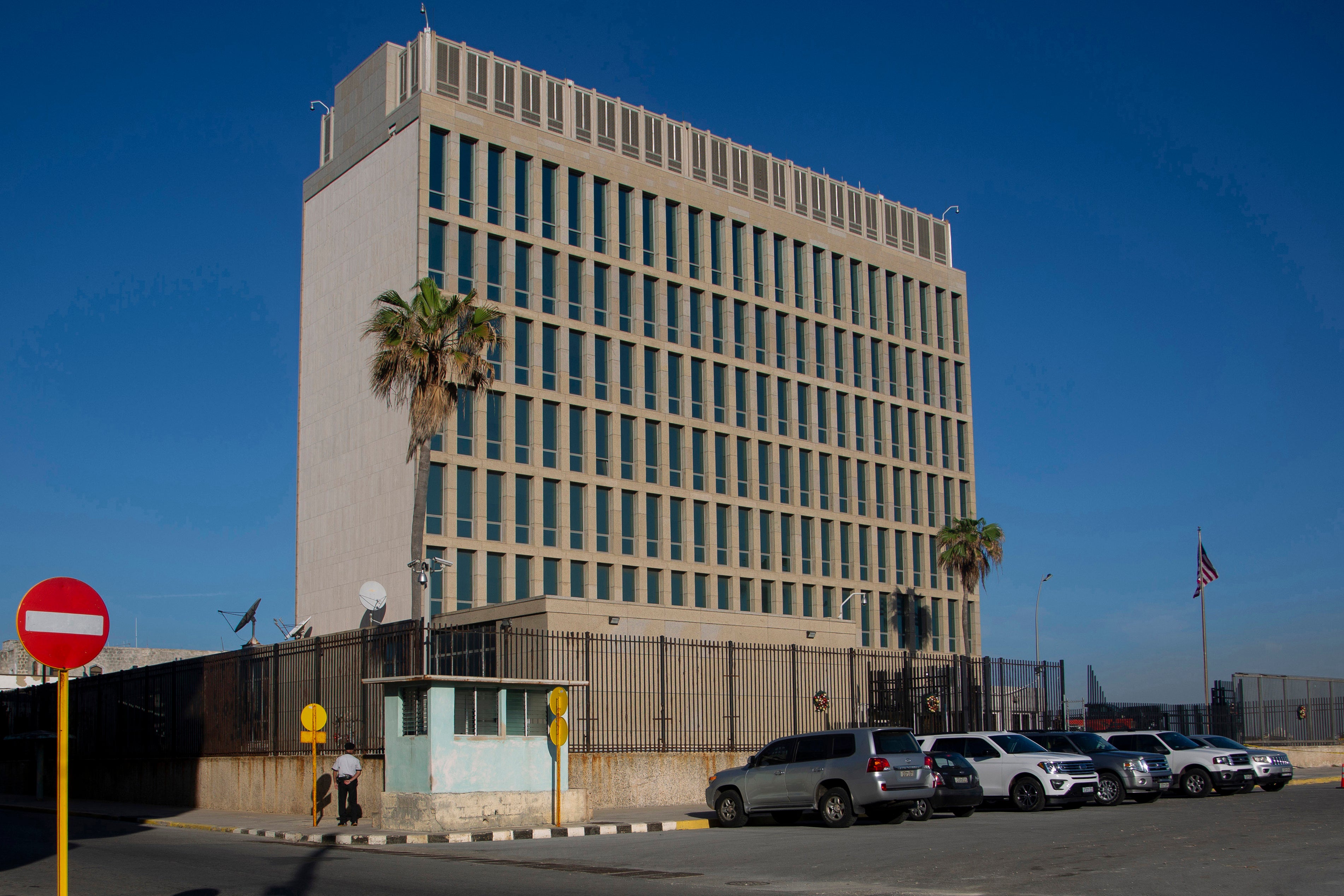Pentagon reveals US defense official suffered from mystery ‘Havana syndrome’ during NATO summit
Havana syndrome is still under investigation

A senior defense department official who attended last year's NATO summit at Vilnius, Lithuania, had symptoms similar to those reported by US officials who have experienced “Havana syndrome," the Pentagon said on Monday.
Havana syndrome is still under investigation but includes a string of health problems dating back to 2016, when officials working at the US Embassy in Havana reported sudden unexplained head pressure, head or ear pain, or dizziness.
The injuries to key US government personnel or their families were part of a “60 Minutes” report Sunday that suggested Russia is behind the incidents, one of which took place during the 2023 NATO summit at Vilnius.
“I can confirm that a senior DOD official experienced symptoms similar to those reported in anomalous health incidents,” deputy press secretary Sabrina Singh told reporters Monday. Singh referred questions on whether Russia had a role to the intelligence community, which is still investigating the matter.
The official, who was not identified, was not part of Defense Secretary Lloyd Austin's official traveling delegation to Vilnius, Singh said, but was there “separately, attending meetings that were part of the NATO summit."
Singh did not say whether the affected defense official had to seek further medical care, retire or cease performing duties, citing medical privacy.
In February the Office of the Director of National Intelligence in its 2024 threat assessment found that it was “unlikely” that a foreign adversary was responsible for causing the mysterious ailments but noted that US intelligence agencies had varying levels of confidence in that assessment.

The Pentagon's health care system has established a registry for employees or dependents to report such incidents. In March, however, a five-year study by the National Institutes of Health found no brain injuries or degeneration among US diplomats and other government employees who had Havana syndrome symptoms.
A history of Havana syndrome
Since 2016, roughly 200 American personnel have fallen ill with the syndrome, according to the latest reports.
The first incident was in 2016 in Havana, Cuba. According to the State Department, at least 21 employees of the US embassy there reported the typical symptoms: headaches, tinnitus, and balance and memory problems. Some retired early because of the illness, which became known as the “Havana syndrome.”
American officials were stumped, and some accused the CIA of not taking the situation seriously enough. The Trump administration, eager to shut down diplomacy with Cuba anyway, removed more than half the staff of the Havana embassy, accusing the country of “specific attacks.” Cuba has denied any responsibility.
But before long the syndrome was popping up in other places. Intelligence officers reported the same symptoms in China and Russia. Marc Polymeropoulos, a former senior CIA officer, was in Moscow in 2017 when he was suddenly stricken.
“I was woken up in the middle of the night with an incredible case of vertigo,” Mr Polymeropoulos told The Guardian. “My head was spinning, incredible nausea, I felt like I had to go to the bathroom and throw up. It was just a terrifying moment for me. I had tinnitus which was ringing in my ears, and the vertigo was really what was incredibly debilitating and I really wasn’t sure what was happening. I couldn’t stand up. I was falling over.”
Four years later, Mr Polymeropoulos says his headache still hasn’t stopped. In 2019, he retired from the CIA because of his symptoms.
“I had a lot more to offer,” the former intelligence officer told GQ. “I was 50, but I had to retire because these goddamn headaches don’t go away.”
The cases kept coming. In 2018, almost a dozen staffers were evacuated from the US embassy in Guangzhou, China, after reporting a “medical incident” similar to the event in Havana. In the fall of 2020, a number of US troops in Syria developed mysterious flu-like symptoms, similar to those of the Havana syndrome.
There have also been suspected attacks on US soil. In 2019, a White House staffer reported being stricken with the Havana symptoms while walking her dog in Arlington, Virginia. And in November 2020, Defense officials have now told members of Congress, a suspected attack sickened a National Security Council official near DC’s Ellipse park – within walking distance of the White House.
On 7 June, the US Senate voted unanimously to provide financial support to victims of the mysterious syndrome.
Later in the summer, Vice President Kamala Harris’ flight to Hanoi, Vietnam, was delayed after US personnel in the Vietnam capital reported experiencing Havana Syndrome-related symptoms over the weekend ahead of her trip.
And in December, a State Department employee reportedly filed a lawsuit against Mr Blinken and the agency for alleged disability discrimination.
Mark Lenzi, a member of the diplomatic security services, claimed in court that his employer failed to adequately investigate him falling ill in 2017 when he was based in Guangzhou, China.
Mr Lenzi said he and his wife and children all began experiencing “sudden and unexplained mental and physical symptoms” in November 2017, but were not evacuated.
What is causing the illness?
“Directed, pulsed radiofrequency energy” was the culprit found by the National Academies of Sciences, Engineering, and Medicine, in a May 2021 report on the illness commissioned by the State Department.
According to a New York Times analysis, that language is crucial. By using words like “pulsed” and “directed,” the report was saying the energy wasn’t randomly dispersed by a cellphone or other device. It was being aimed at people.
How does one aim “energy” at people? And who’s doing the aiming? The reports that have leaked from the CIA and other agencies have been vague, citing classified information and a need to avoid making unfounded accusations. But after a contentious CIA briefing earlier this month, some members of Congress were more blunt about what they think is going on.
“There’s a mysterious, direct energy weapon that is being used,” Senator Susan Collins, who is on the Senate Intelligence Committee, told CNN after the briefing. “And it is causing, in some cases, permanent traumatic brain injury.”
Months later, Secretary Blinken suggested little progress has been made on identifying the cause.
“To date, we don’t know exactly what’s happened and we don’t know exactly who is responsible,” he told MSNBC on 13 January.
He went on to say that the admission was not an indication that the federal government was not taking the symptoms seriously, and said that his department was working “overtime” to find answers.
“There is no doubt in my mind that people have been directly and powerfully affected,” he said.
“We are working overtime across the entire government to get to the bottom of what happened, who’s responsible. And in the meantime to make sure that we’re caring for anyone who’s been affected and to protect all of our people to the best of our ability.”
Bookmark popover
Removed from bookmarks